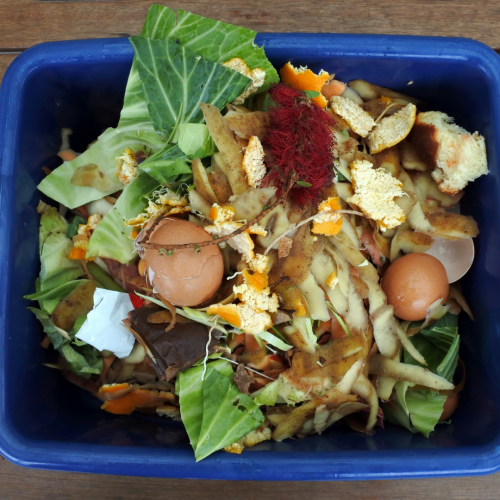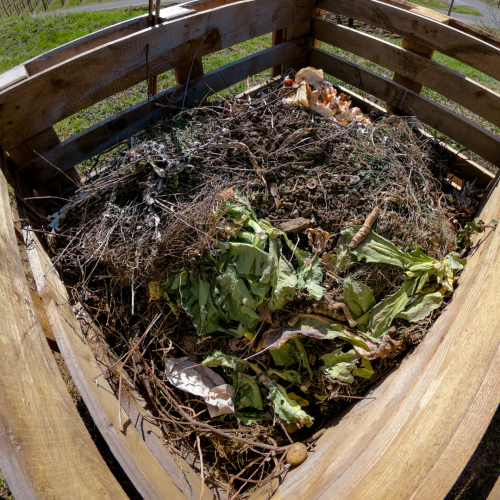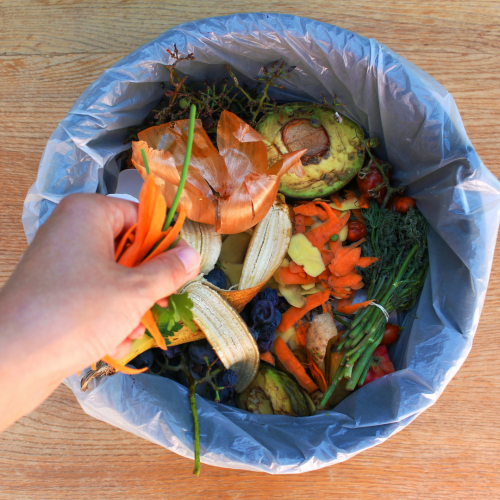Did you know that this week, January 23 – 29, is Zero Waste Week in Gainesville? This week, learn to reduce your food waste with home composting! Keeping food scraps out of the landfill not only saves landfill space, but also reduces the production of the harmful greenhouse gas methane, which is a powerful driver of climate change.
 Why Compost?
Why Compost?
Keeping food scraps out of landfills not only saves space, but also reduces the production of the harmful greenhouse gas methane, which is a powerful driver of climate change.
Choose a location
Set aside a bin in your kitchen or a hole in your backyard to save food scraps. If you live in a small space, a small bin can be placed near a well-ventilated area.
Gather your food waste
Try to keep your compost ratio three parts browns to one part greens.
Greens include:
- Fruit & veggie scraps
- Eggshells
- Tea & coffee grounds
- Nutshells
- Hair & lint
Browns include:
- Dead leaves
- Branches & twigs
- Sawdust
- Coffee filters
- Shredded papers
- Nut shells
 Fill your compost bin
Fill your compost bin
Alternate layers of greens and browns in your bin.
Keep your compost moist, but not too wet. Finish with a brown layer on top to control odor.
How do I know if my compost is ready?
The compost is ready to use in your garden when it has a dark, uniform appearance, no remnants of food or waste and an earthy odor.
Other ways to compost at home
If you are unable to make your own compost system at home, there may be a service that can help! Look for services near you that will allow you to collect your weekly compostable items, and then drop them off at the end of the week! If you live in the Alachua County area, you can find some in the links below.
 Resources
Resources
- Read a personal account of how to start composting at home
- Composting information from Zero Waste Gainesville
- Composting information and tutorial from UF IFAS
- City of Gainesville Food Waste Pilot Program
- Beaten Path compost service
- Two Farms One Dream compost service
Info from PBS Nature and Zero Waste Gainesville.